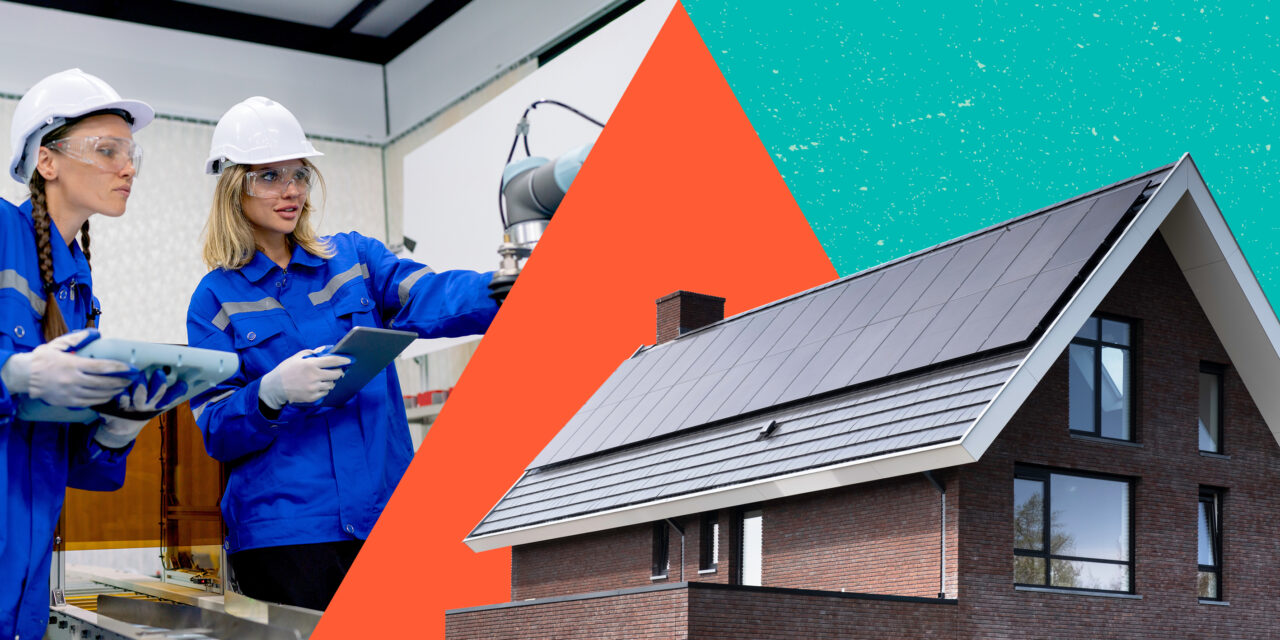Sustainability continues to be a ‘hot topic’, but defining its true meaning is no easy feat. Even the dictionary definition falls short of capturing its complexity and nuances. That is because sustainability is a multifaceted concept and can take on a different meaning for every individual and business. But its significance cannot be overstated, especially when working within the built environment, because as an industry it has the potential to have a significant and long-lasting impact. As a business, you must have a clear understanding of what sustainability means for you, so that you can then leave behind a legacy you are proud of. If you have the ability to do the right thing, you should as we all have a responsibility, and a part to play, in creating a sustainable future.
THE CHALLENGE
Those of us operating in the built environment are well aware of the UK’s ambitious goal to achieve net zero emissions by 2050, which places sustainability firmly at the forefront of discussions. While some may view this target as unrealistic, aiming high allows us to surpass expectations and achieve more. However, for the industry, there are unique challenges to address. As a large industry with fragmented supply chains, we have the greatest capacity to make significant changes and turn these challenges into a transformative force. Yet, the diversity of perspectives on sustainability within our supply chain and the practicalities of implementing these changes can cause fragmentation.
Take cost for an example. While many people support the concept of net zero, the affordability of adopting such changes often becomes a determining factor. To overcome this, we must try and shift our mindset to help everyone get onto the same page, and integrate sustainability into every aspect of the construction process. This requires embracing innovative solutions, which are already emerging across the industry, rather than simply always using the tried and tested materials, techniques and suppliers. From hemp blocks to bricks made from sugar and the use of algae in buildings, remarkable innovations are paving the way for a greener future. We just need to be braver and make these innovations the ‘norm’.
Sustainability involves acknowledging that as humans we consume natural resources and always will. However, our aim should be to strike a balance that allows us to coexist with minimal impact. It is about mitigating and offsetting our environmental footprint while actively revitalising the planet where possible. For many, net zero is unattainable because it is a massively ambitious target, but we must have ambitious targets set if we are to move the dial. All too often we feel that meeting a minimum standard is success, but the minimum is exactly that. We should be going above and beyond by setting the bar high and aiming high.
Sustainability is an ongoing effort that demands continuous improvement. It can be approached at three levels: global, corporate and personal, each encompassing different pathways to achieve environmental goals.
THE SOLUTION
When clients approach Fabrick feeling overwhelmed and uncertain about incorporating sustainability into their business goals, we employ a three-pillar approach. Firstly, we assess their existing business approach and corporate responsibility, as these factors significantly influence a company’s sustainability. Secondly, we examine the products or services offered by the client, seeking opportunities for environmentally-friendly improvements, such as waste reduction. Lastly, we encourage clients to consider the legacy they will leave behind, emphasising the importance of lasting improvements. Only then can a business really set any meaningful strategies and policies that will make a real and long-lasting difference.
To effectively promote sustainability, it is crucial to evaluate and showcase existing initiatives. For instance, if you have electric vehicles, car-sharing programmes, or an effective recycling scheme, highlight these efforts and set an example for others to follow. Next, establish mid-level goals that require additional effort but can be achieved within the next years. Finally, set long-term goals that may involve more substantial changes and investments. This approach provides a clear roadmap to guide your sustainability journey.
As a leading construction marketing agency, Fabrick has the ability to help influence and guide client sustainability journeys by sharing our knowledge and experience. We understand the importance, but we also understand that Rome wasn’t built in a day!
In conclusion then, whilst it is clear that implementing all necessary changes immediately is unfeasible for a business, it’s vital to stay engaged in the sustainability conversation, keep informed of new innovations, and take action within our means. Events like Futurebuild exemplify how the industry can unite with a shared passion for transformation, driving real change and innovation. Let’s embrace the remarkable innovations already underway and remain committed to continuing the conversation in the industry. Let’s be brave and take risks, embracing new methods, materials and technologies. Let’s educate the industry on the alternatives available and most importantly, let’s work together to create a sustainable future for all to enjoy.
If you would like support creating sustainability roadmaps and communicating your company’s sustainability story and values, please do not hesitate to contact us.


